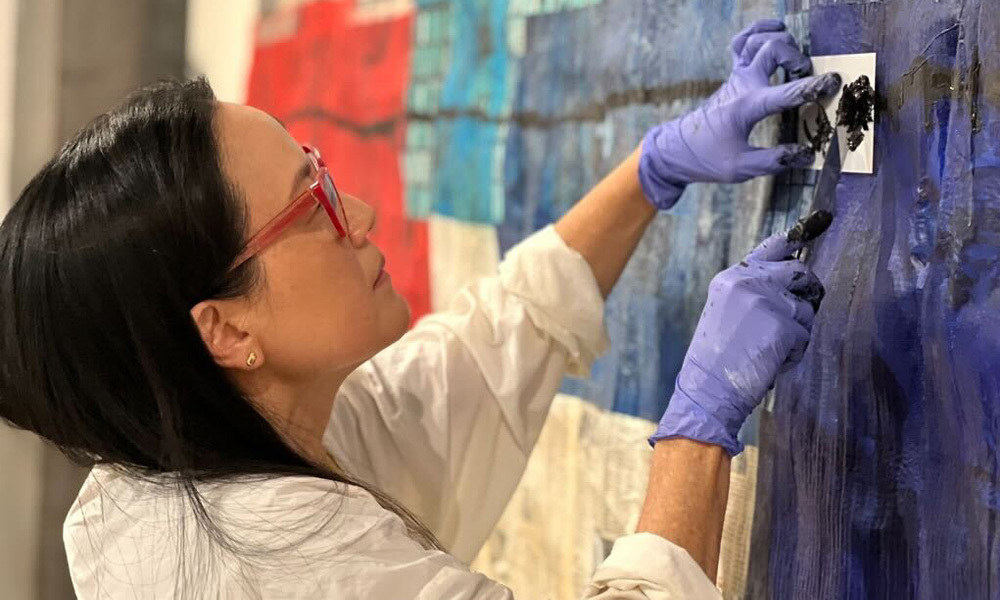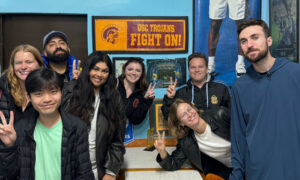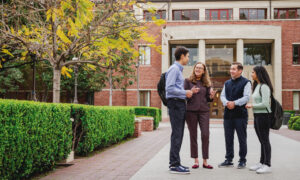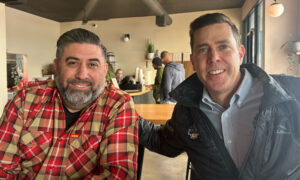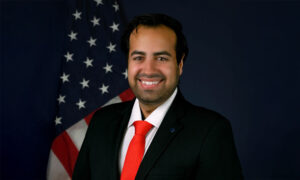When Annette Miae Kim started grade school in California in the 70s, she felt a bit lost. Although born in the United States, her parents had immigrated from South Korea, and Korean was the only language spoken in the home. The English-only school presented the young Kim with a substantial adjustment. “For the first week I just didn’t say anything because I couldn’t,” she said. “But then I started picking it up. Kids are so resilient, they learn quickly.”
The lessons Kim learned through language and the emotional responses it creates would inform her work throughout her career. Not only is she an Associate Professor at the USC Price School of Public Policy, she is also an accomplished artist with an appointment at the USC Roski School of Art and Design.
“What I learned through neuroscience research is that all languages are spatial, they all have the prepositions such as “above”, “beyond” and “before.” ara can communicate a lot, but there are also limits to what words can express. Visual art fills in those gaps,” Kim said.
Her artistic sensibilities are put to good use in her day job as director of the USC Price School’s Spatial Analysis Lab (SLAB), which uses maps and other visual aids to develop narratives about marginalized people and places to foster a more inclusive society.
Her most recent artwork is on display at the ReflectSpace Gallery in the Glendale Public Library. According to its website, the ReflectSpace Gallery came at the behest of The Glendale City Council for a city space to address the Armenian Genocide and other human atrocities, and the space is designed to explore and reflect on genocides, human and civil rights violations.
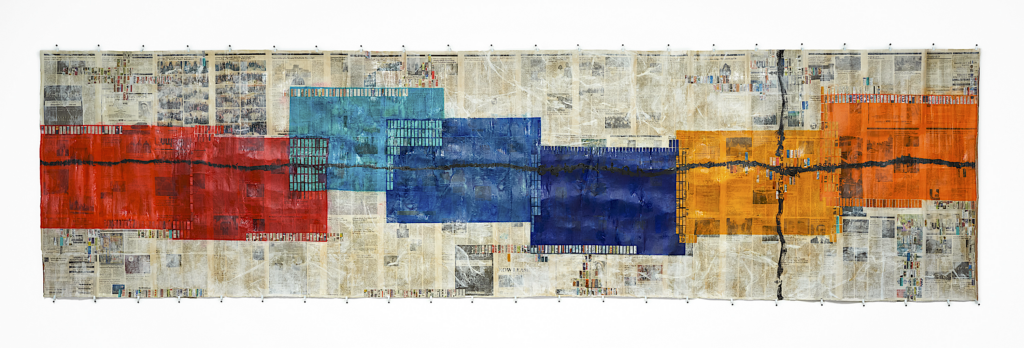
The current exhibition, (Be)Longing: Asian Diasporic Crossings, explores the effect of war and displacement on subsequent generations and the East-West Asian diaspora through maps, sculptures, photography, and other media and features artists from the U.S., South Korea, and China.
In many ways, Kim sees the genesis of this exhibition as rooted in the 2013 installation by the City of Glendale of a bronze statue of a young woman in Korean dress in the public park outside the library. Known as a “Comfort Women” statue, it memorializes Asian women and girls who were held as sex slaves by the Japanese Imperial Army during World War II.
Kim sees the intersection of arts and culture with government as a way to have a public conversation about these issues and a space around which to gather people.
“This has been an interesting intersection between where my public policy world and the art world has really come together,” Kim said.
Kim was approached to participate in the exhibit by its curator, Ara Oshagan, a prominent member of the Armenian art community. Given the theme of the show, he was particularly interested in having Korean artists participate.
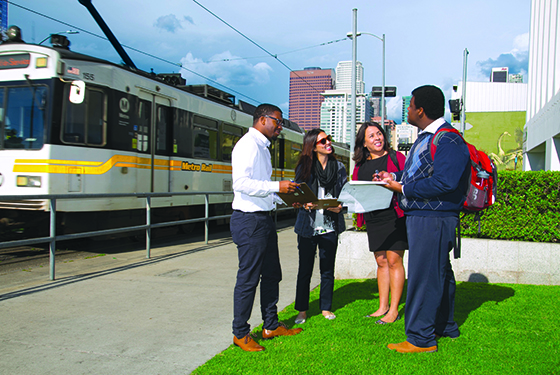
Master of Urban Planning
Make Cities More Just, Livable & Sustainable
USC’s MUP degree trains students to improve the quality of life for urban residents and their communities worldwide.
Find Out MoreEven though print is no longer widely used for English newspapers, many ethnic communities still have hard-copy newspapers in different languages. Kim traveled all over L.A. to find them and then incorporate them into her art.
“What moved me is that Western Armenian is an endangered language on the UNESCO list. With the Armenian diaspora all over the world, they are trying to stay connected as a nation and a people and circulate these newspapers to keep the language alive.”
Kim understands that languages and flags come together to represent identity. One of her pieces on display at the Glendale Public Library consists of colors of the Armenian flag, known as the tricolour, with Armenian newspapers forming the background.
The edges come in and out and overlap to represent the mixing of identities, which is very much what happens in Los Angeles, with its confluence of languages and cultures.
“When Armenian-Americans come into the gallery, they immediately recognize the colors of the Armenian flag,” Kim said. “If they see the combination, even if it is in a different order, there is a strong emotional response.”
Kim understands this feeling personally. “Annette is my English name, but I have an emotional, visceral response to my Korean name, Miae.” She hopes her work continues to generate these types of conversations.
About the exhibit
(Be)Longing: Asian Diasporic Crossings is on display until September 22, 2024 at the ReflectSpace Gallery.
Glendale Central Library
222 East Harvard, Glendale, CA
Admission is free
